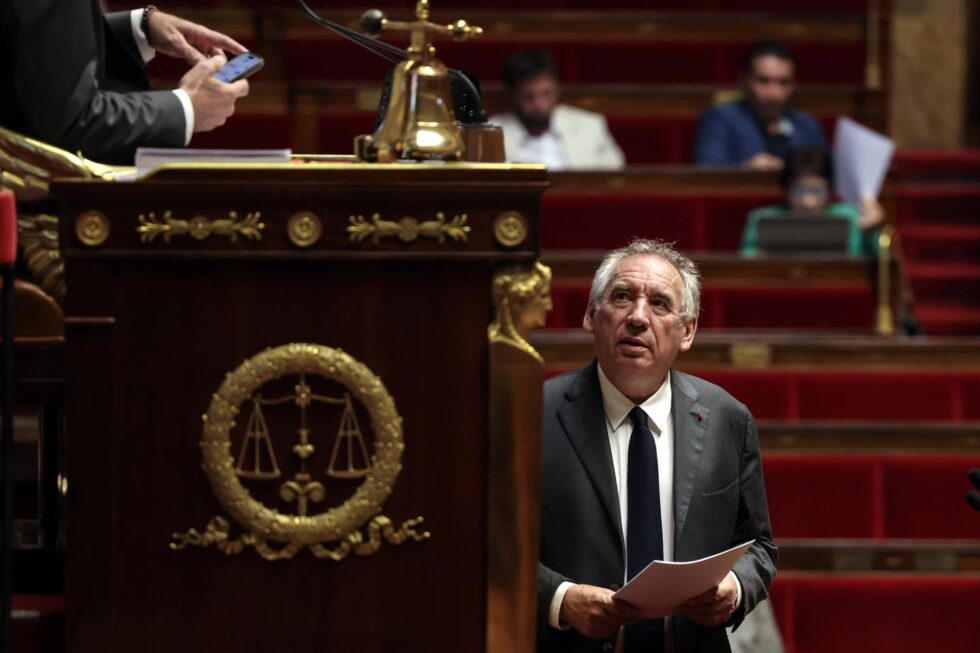
The rain made its way into France’s Assemblée Nationale. On the evening of Wednesday, June 25, a fierce thunderstorm struck Paris, damaging the roof of the building and allowing a thin stream of water to trickle into the chamber itself. It lightly splashed Prime Minister François Bayrou, and the session was suspended. “Did you notice it was raining?” he asked Roland Lescure, a vice president of the Assemblée, worriedly.
Political leaders are often highly attentive to the possible interpretations of such signs, as well as to the images they produce. In this case, many commentators amusedly read into it as an ill omen for the government’s future. Yet if one were to look for a parable, the event could just as well serve as a reminder to lawmakers that, even inside the Assemblée, they cannot completely escape the physical realities of the outside world.
On environmental issues, a growing proportion of politicians seems to have an increasingly detached relationship to environmental realities, sometimes to the point of ignoring them altogether. On June 19, as an early heat wave set in, the MPs present in the Assemblée voted for a moratorium on the expansion of renewable energy facilities. (Let us recall that the increased frequency and intensification of heat waves is one of the effects of ongoing warming, and that there is no decarbonization scenario that is not based on renewable energies.) When the newswire reporting the vote was read out in Le Monde‘s newsroom, it sparked disbelief and astonishment among the journalists on the climate and energy beats. Some wondered if there had been a typo or mistake in the report. But no, that was, indeed, what had just happened: In the middle of a heat wave, Parliament delivered a slap in the face to climate efforts.
You have 69.02% of this article left to read. The rest is for subscribers only.








